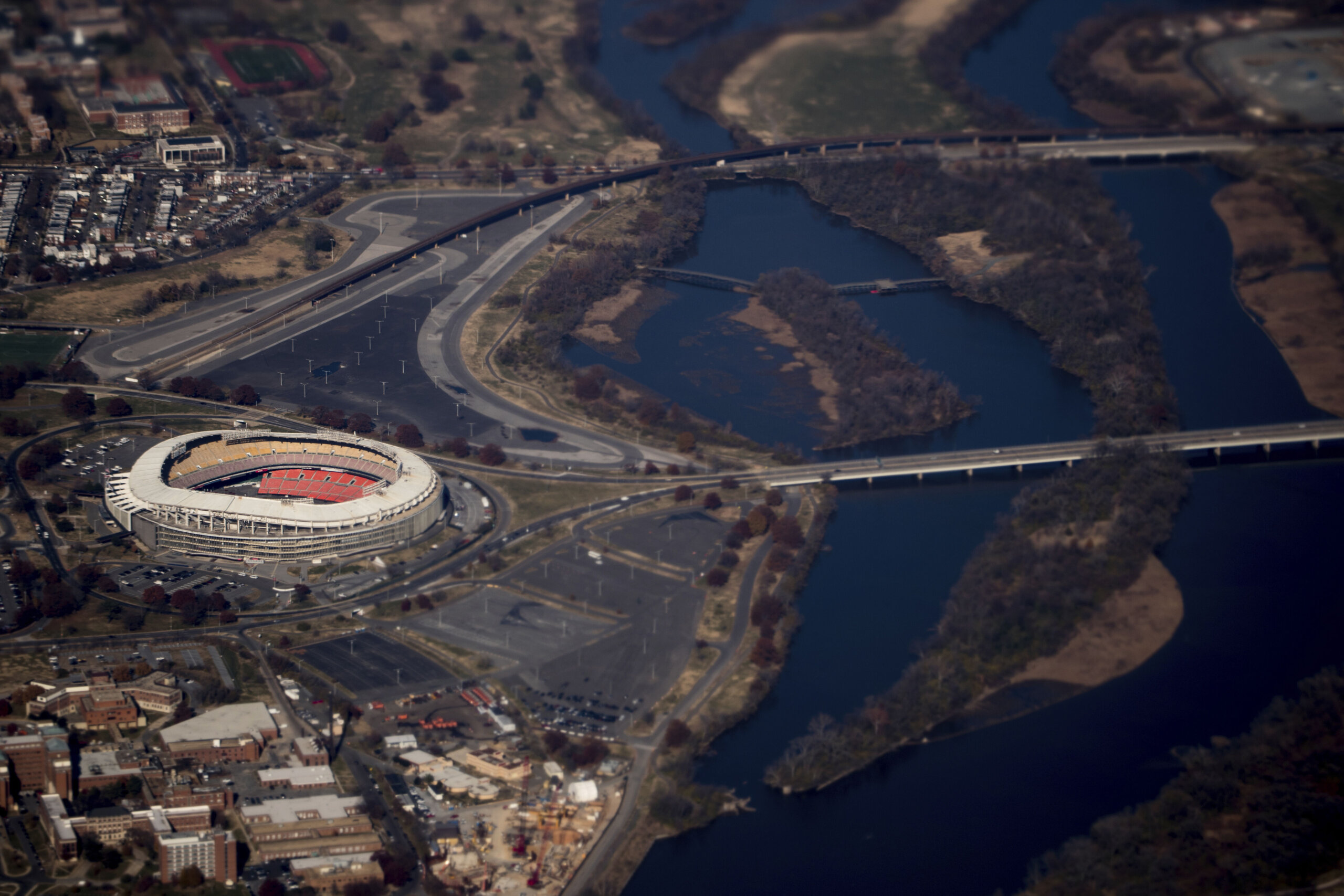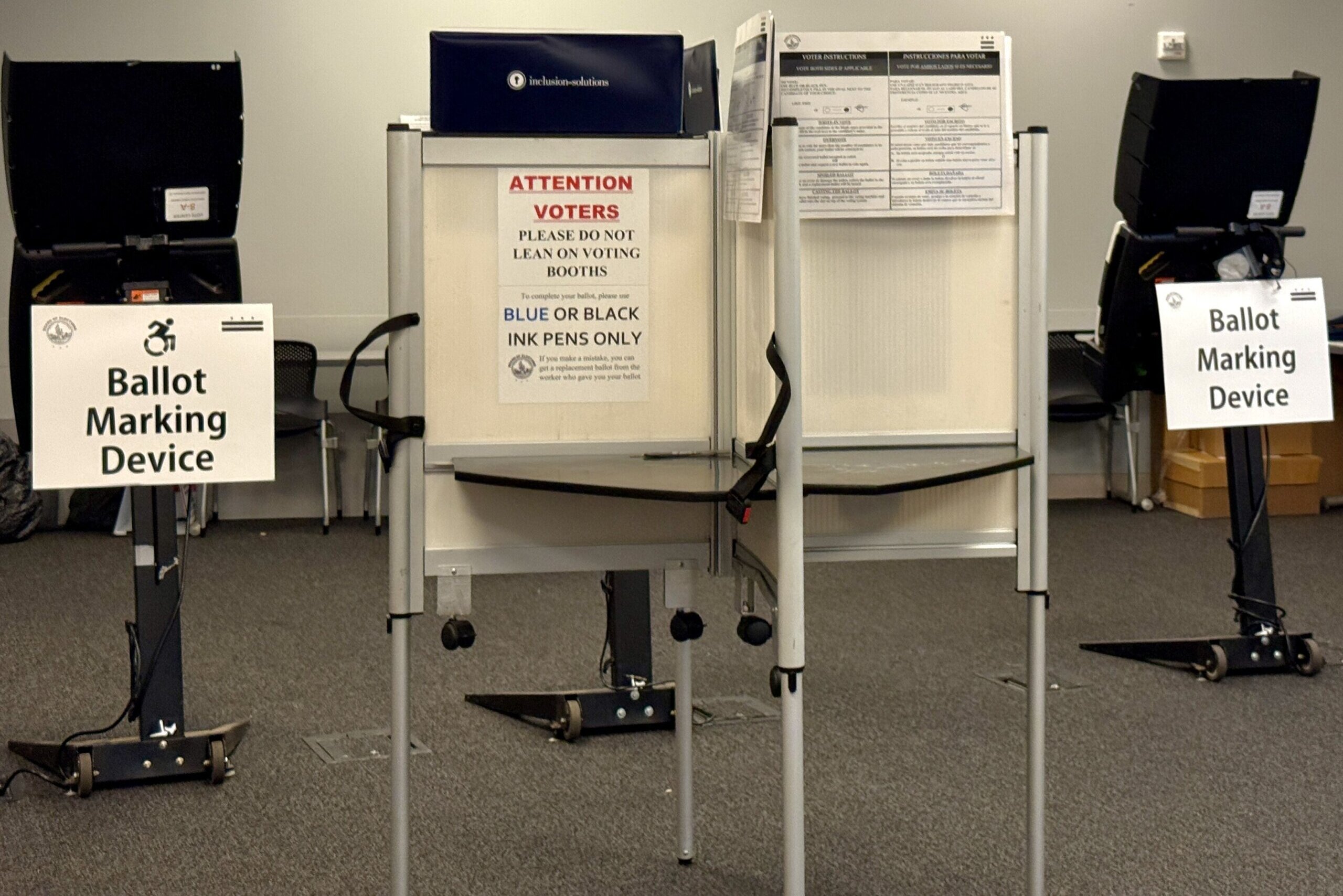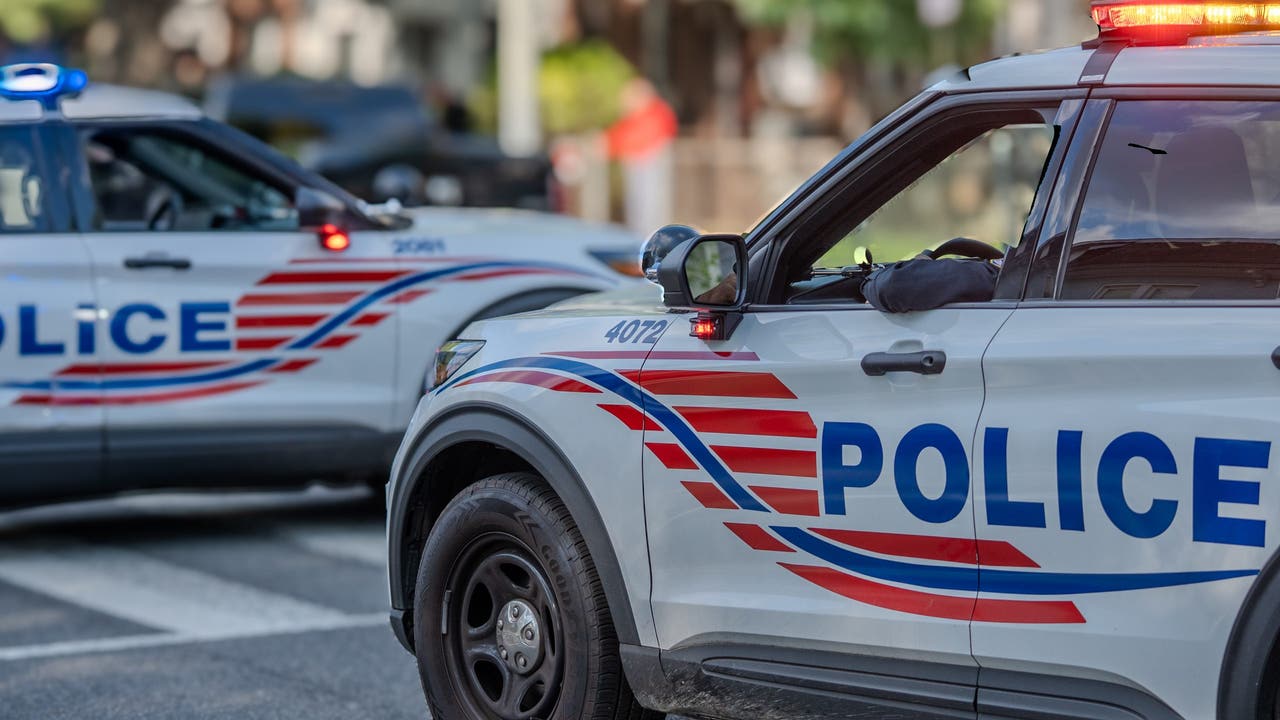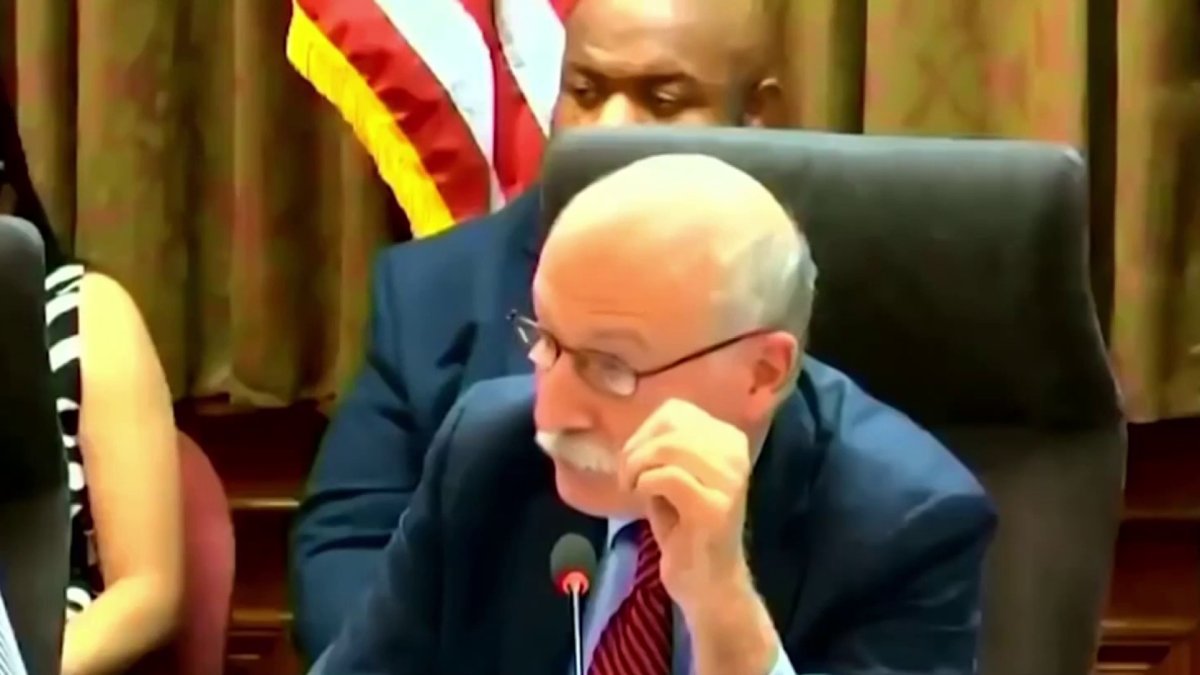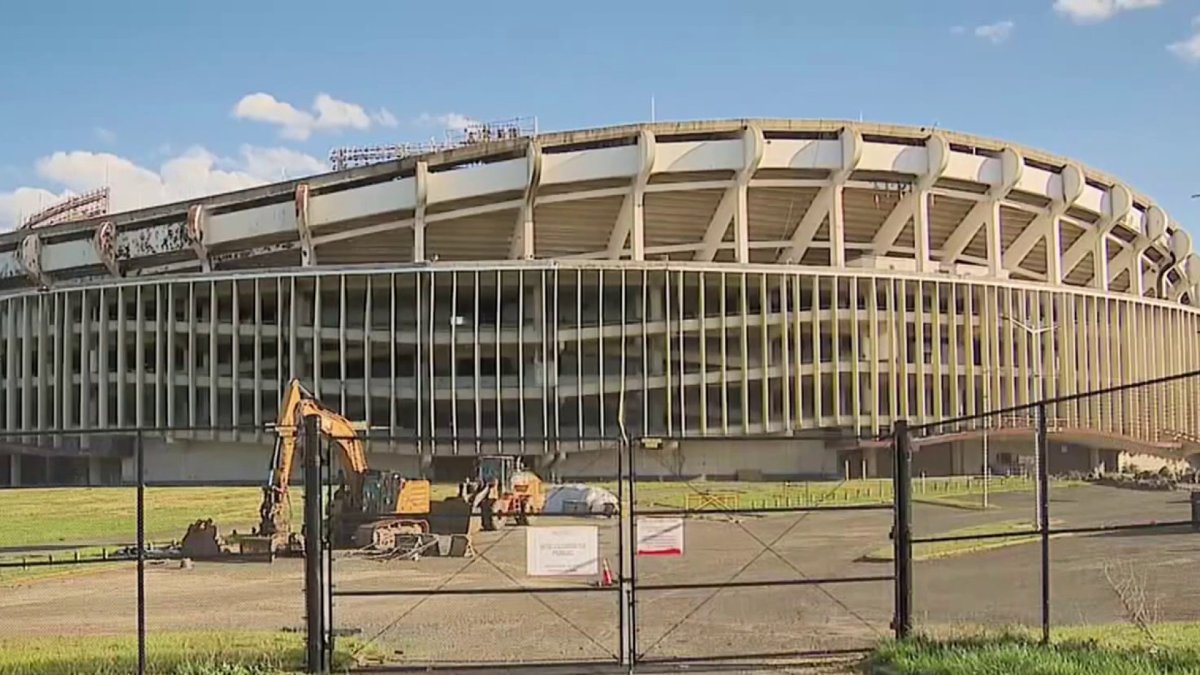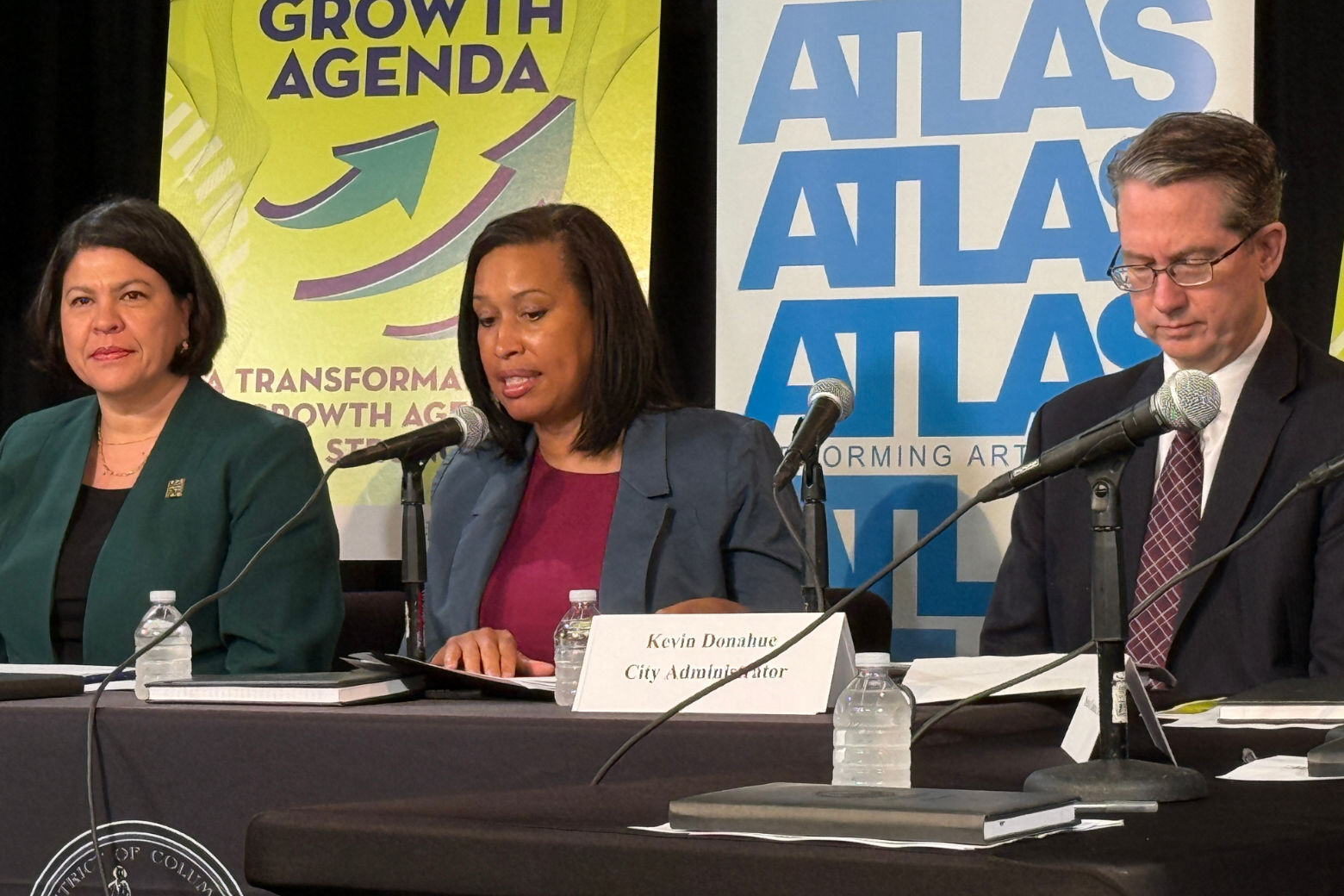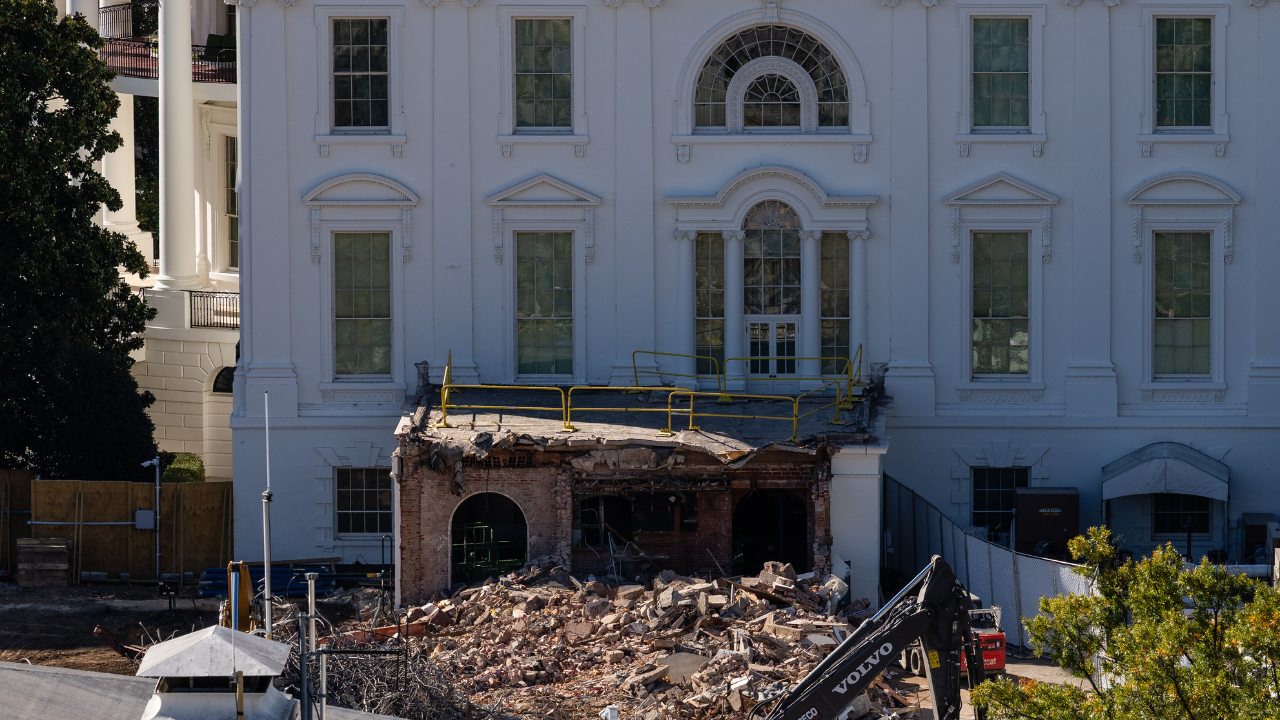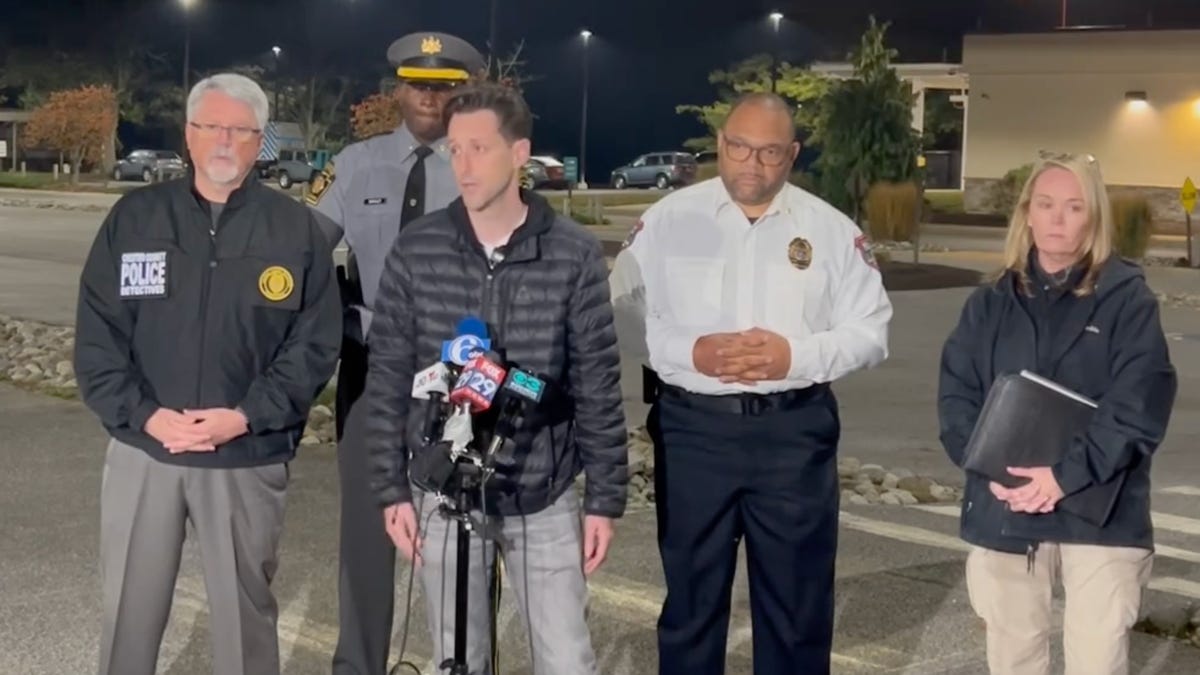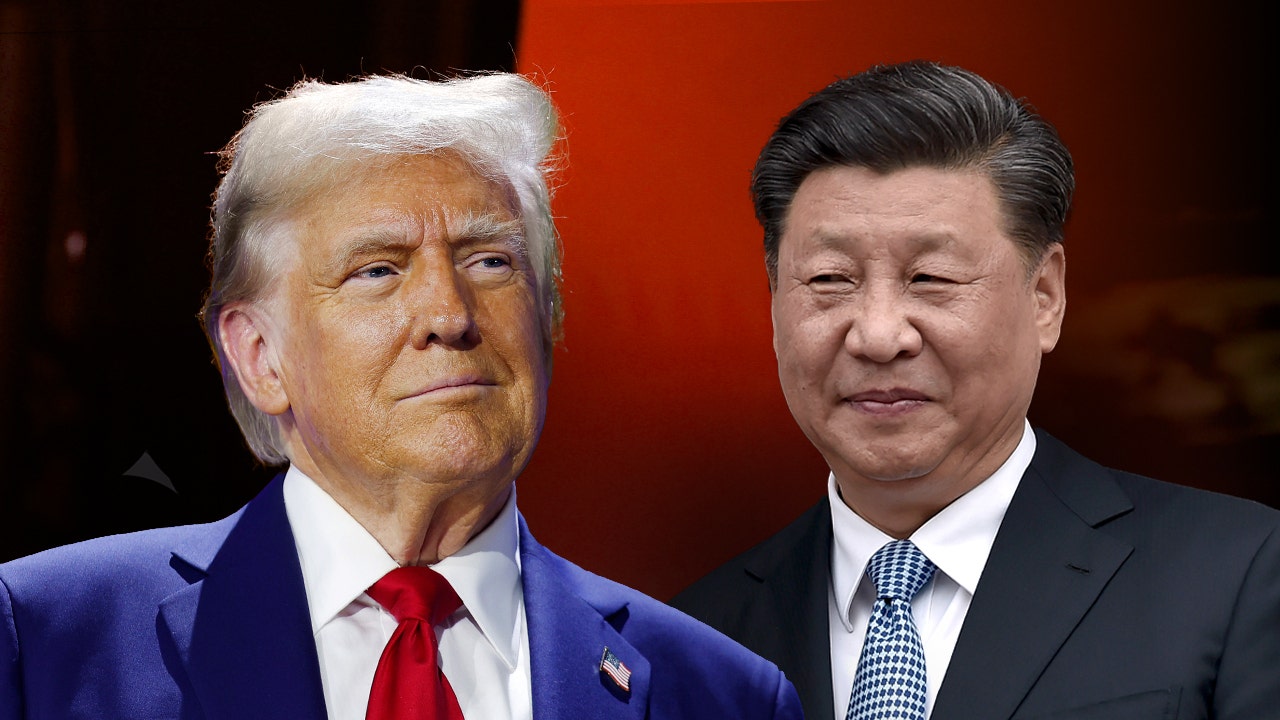Washington, D.C
‘It’s complicated’: DC officials mark 50th anniversary of Home Rule Act, continue push for statehood – WTOP News
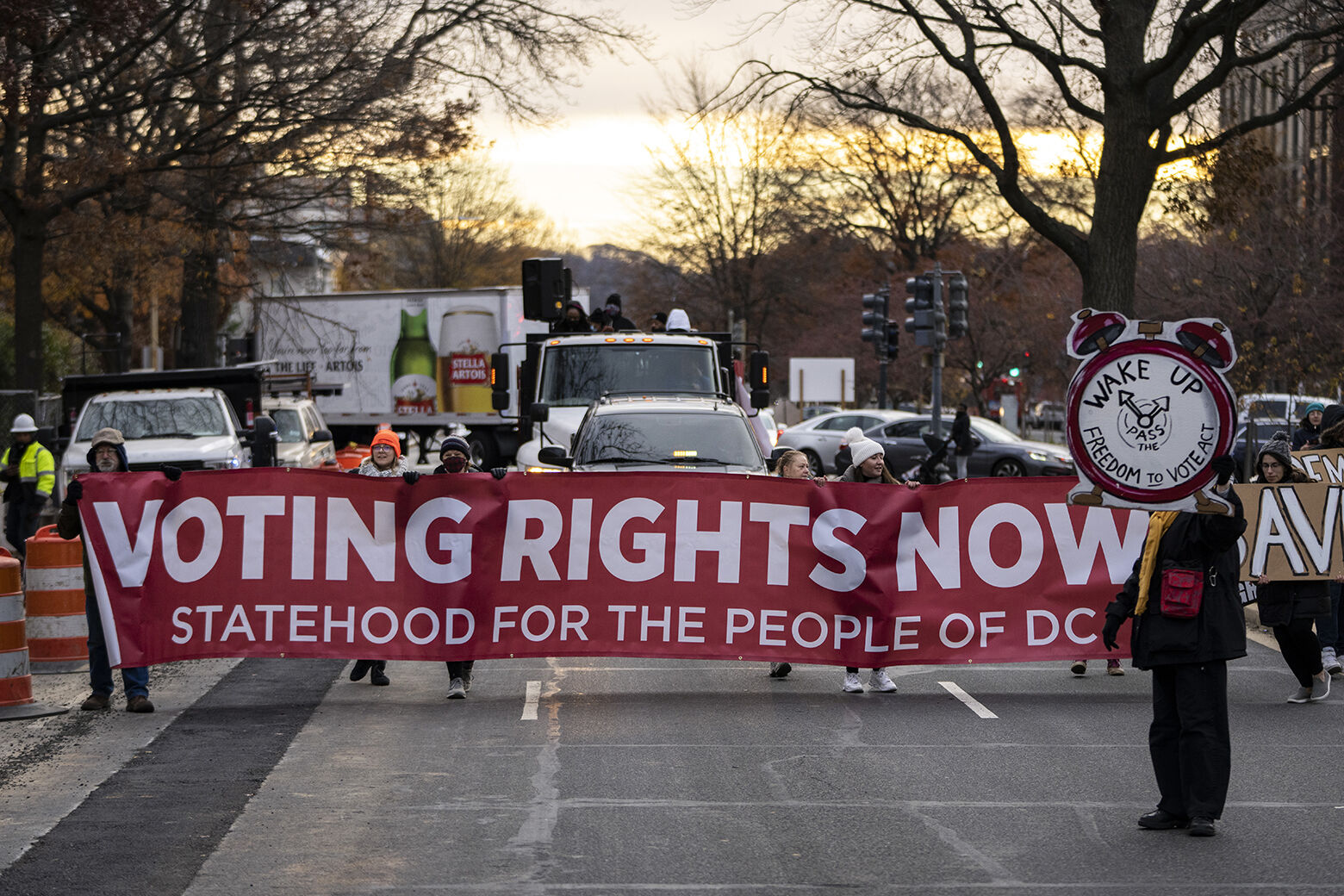
D.C. got a unique Christmas Eve surprise from President Richard Nixon a half century ago — the right to self-governance. But District leaders said the goal remains statehood.
D.C. got a unique Christmas Eve surprise from President Richard Nixon a half century ago — the right to self-governance.
It came after decades of failures for the city, between 1948 and 1964, as a handful of bills came to the floor of Congress only to fail passage.
“After turning out by the thousands for the March on Washington to support Black voting rights across the country, they couldn’t vote in their home city,” the DC library notes in its commemoration of 50 years of home rule.
D.C. leaders wrote to their “friend and ally” Martin Luther King, Jr. to support their cause, the library added.
“King spent three days in D.C., meeting with community leaders and leading rallies in support of racial justice and D.C. Home Rule,” the commemoration said.
Over the years that passed, leaders like former Mayor Marion Barry and activist Dick Gregory would be among those that pushed to increase self-governance until Congress finally passed the Home Rule Act.
“That federal law allowed us to elect our own Council and mayor for the first time in nearly a century,” the council said in its statement.
However, as Mayor Muriel Bowser said ahead of the Home Rule Act anniversary, the District continues to be overruled by federal officials in Congress and the White House, depending on who exactly is in charge of each branch of government.
“In the 50 years since achieving limited Home Rule, we have made significant strides in moving D.C. forward. We built a strong local economy, and today we are a donor state and give more to the federal government than we get back,” Bowser said.
Since then, Bowser said, the city has improved public school systems, bond ratings and “led the way on important civil and human rights issues” without congressional votes or support. It has not, however, achieved statehood.
“This year, we look back with gratitude for those who came before us and fought for Home Rule, and we keep pushing for a future where we have full access to American democracy. We know that full access means D.C. statehood,” Bowser said.
Statehood would mean “voting representation in the House and two senators representing us in the Senate,” Bowser said.
“It means a more perfect democracy for our country – one where Americans living in the shadow of the Capitol, who have all the responsibilities of citizenship and who go to war to defend our freedoms, have representation in Congress,” she added.
D.C. Council members, in a joint statement on the 50th anniversary of home rule, echoed Bowser’s comments, calling the history of home rule complicated.
“While the 1973 Christmas Eve anniversary is clearly worth celebrating, it is important to remember a critical detail: that it is not the date DC received Home Rule, it’s simply the date the federal government formally declared they would give it to us,” the Council said.
As the body notes, it would take until Jan. 2, 1975, for the city to swear in its council and executive — which consisted of “Mayor Walter Washington, Council Chair Sterling Tucker and a council that included future mayors/Council chairs Marion Barry, David Clarke, Arrington Dixon and John A. Wilson.”
“As we painfully learned recently with our criminal code reform measure, a simple vote by each house of Congress, and a signature from the President, is all it takes to overturn any law passed by the duly-elected Council and mayor of the District of Columbia,” the Council wrote. “‘Home Fool’ indeed.”
This complicated history and reliance on congressional approval for local legislation, D.C. Delegate Eleanor Holmes Norton has argued, further highlights that the city only has “some authority to legislate on local matters.”
“I will not stop until we reach #DCStatehood,” Norton wrote in a Dec. 19 social media post.
“Our future is one where our Home Rule is not limited – where DC residents have full representation, full autonomy, and full access to our fundamental rights as American citizens,” Bowser concluded.

Washington, D.C
What I Saw At The Insurrection
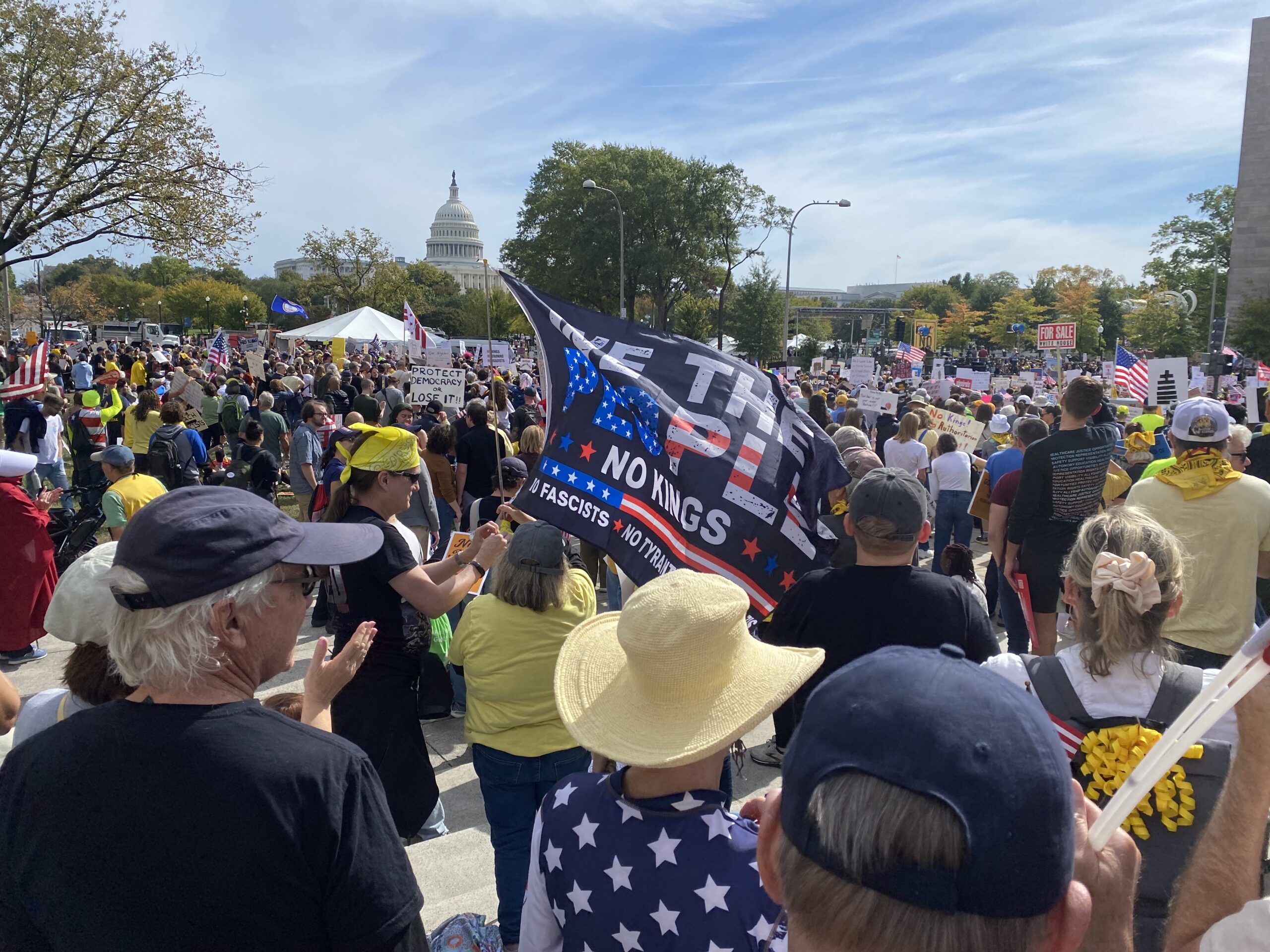
I looked everywhere for Mike Johnson at the No Kings rally in the heart of the nation’s Capitol last Saturday. I even wore my Civil Beat press pass so I could ask him questions, one professional to another.
But the House speaker was nowhere to be found. Maybe he took the day off. The government was shut down, of course, and House representatives were on an extended paid recess.
I covered the protest in my role as a journalist and, after a few hours, I wanted to ask Johnson why he’d said the gatherings opposing President Donald Trump were “hate America” rallies. Because all I saw that day were tens of thousands of people of all ages and backgrounds exercising the right to peaceably assemble along with the freedom of speech, press and even religion.
It was, to use the words of Trump about Jan. 6, 2021, a “day of love.”
All that was missing was the right to petition the government for a redress of grievances.
But then, that First Amendment clause was implicit. The D.C. rally, part of an estimated 7 million protesters at more than 2,700 locations in all 50 states and D.C. (according to No Kings), sent a simple message: America does not need a king.
Trump is not a king, but you can be forgiven if you believe he’s acting like one. He wants to mint a commemorative $1 coin with his mug on it. His first foreign visit as president was to a kingdom, Saudi Arabia, and his second was to the United Kingdom. He wants to build an arch, based on the Arc de Triomphe in Paris, across from the Lincoln Memorial — an “Arc de Trump.”
Ed O’Keefe of CBS News reportedly asked the president who the arch is for, and Trump pointed at himself: “Me.”
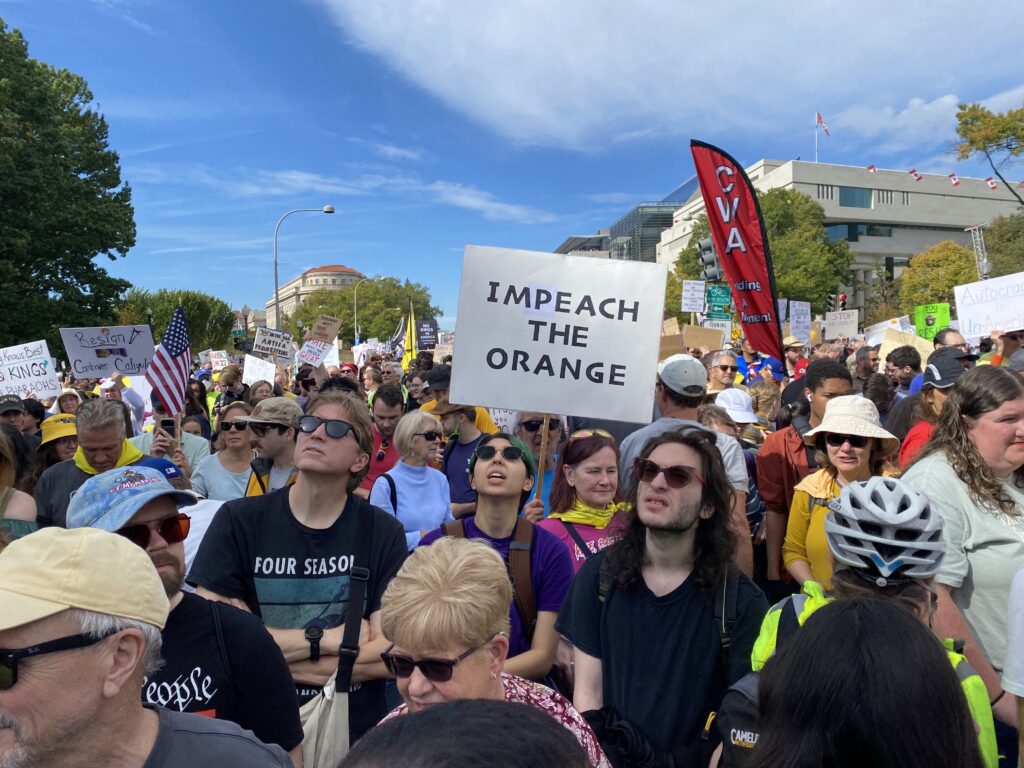
The purpose of No Kings is to accuse the president of behaving more like a monarch than an elected official, and it is succeeding in that regard.
One of the first speakers at the D.C. rally, Democratic Sen. Chris Murphy of Connecticut, reminded the huge throng that his state was the first to adopt a written constitution, thus rejecting the English monarchy. The nation, he said, was not “on the verge” of an authoritarian, totalitarian takeover but smack dab in the middle of one.
Murphy then asked rhetorically if that scared people.
“You can handle the truth,” he said, answering his own question and thrilling the crowd.
‘Jesus Was An Immigrant’
I was in D.C. to attend the Society of Professional Journalists MediaFest 2025. I cut out a bit early on Saturday to make my way toward the location of the No Kings rally at Pennsylvania Avenue Northwest and 3rd Street Northwest, an area astride The Mall and not far from the U.S. Capitol.
My CB colleague in D.C., Nick Grube, had shared with me beforehand advice from the National Press Club on reporting in potentially dangerous environments: “If protesters want to shout in your face, don’t get into arguments with them. If police ask you to step back, do not just take one step and look defiant. Ask them how far back to go.”
Nick also advised that I write his phone number on my arm in case I needed to post bail.
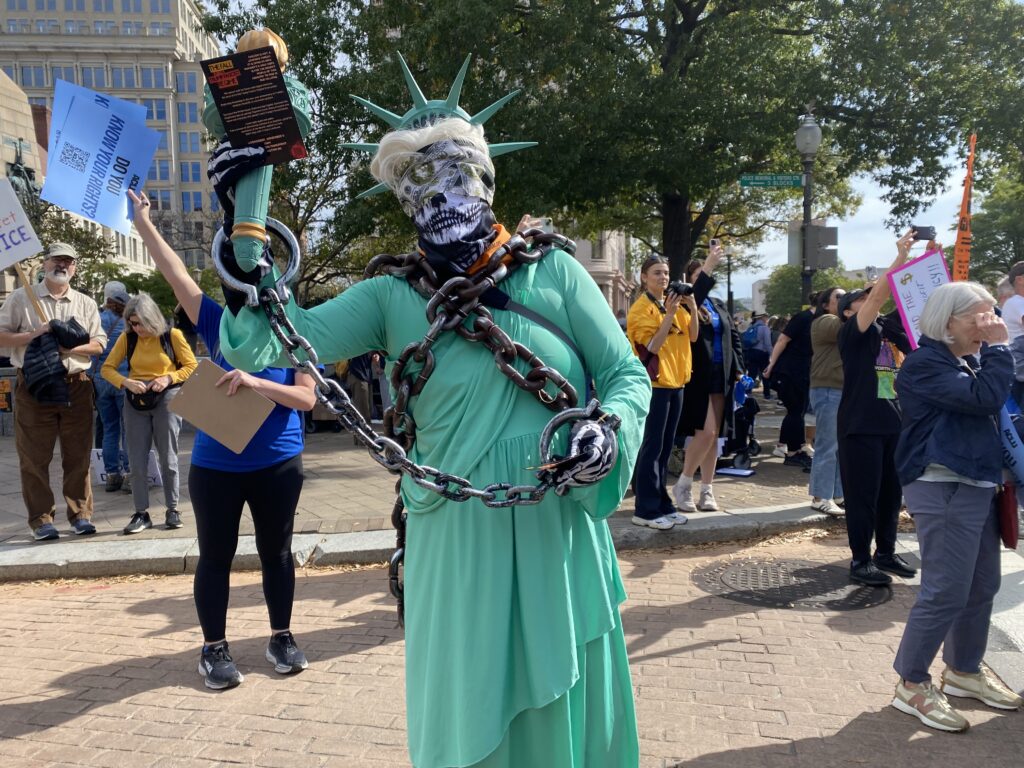
It wasn’t necessary.
My first encounter with security on No Kings day came well before I got to the rally site. Dozens of Metropolitan police, on foot and bicycles, were paralleling a large group of protesters as they marched and chanted toward Pennsylvania Avenues.
“Excuse me,” one officer politely said as he pedaled by me.
“Sorry,” said another.
Then, as the marchers were to turn on to 10th Street, someone fell. The procession halted and the police asked everyone not in the march to clear the street by moving to the sidewalks. Everyone complied as the police surrounded the injured man and someone called an ambulance.
I was momentarily worried that a fight might erupt. Surreally, the man fell on the same block as Ford’s Theatre. (“Sic semper tyrannis,” John Wilkes Booth shouted after assassinating the 16th president.)
But it was all good, the injured man walked it off and the rally soon resumed.
Trump allies may link No Kings participants to the far-left Antifa movement and the “pro-Hamas wing,” essentially deriding them as domestic terrorists. But it’s hard to imagine a masked, hardcore activist in black pausing to let the authorities do their job.
The peaceful display of civil disobedience was also to the credit of No Kings organizers and supporters, all linked over the internet and social media. Most rallies lasted only two hours, something easy to squeeze into a weekend. Most participants took public transportation or walked. People were advised to bring water and snacks and sunblock and hats.
It was also recommended folks wear something yellow to show unity, echoing previous large protests in Hong Kong and Ukraine. But the colors I saw most that day were red, white and blue. These patriots were proud to be American, concerned about the direction of their country and willing to show their faces in public even as federal troops and U.S. Immigration and Customs Enforcement officials prowl the streets.
The best part of a No Kings rally are the homemade signs. Here are a few that for me captured the mood that day: “Free D.C.” “Detox from Fox.” “Fight truth decay.” “Jesus was an immigrant.” “It’s so bad even I am here.”
It is obvious that many No King attendees are not fans of the 45th and 47th president. The f-word was used liberally, even though there were kids all around, many of them costumed as animals to mock ICE agents.
Johnson told ABC News the next day that he was upset about the rhetoric of protesters, for example, calling Trump a fascist. The rallies, he said, were ironic.
“If President Trump was a king, the government would be open right now,” he said. “If President Trump was a king, they would not have been able to engage in that free speech exercise out on the (National) Mall.”
In fact, Trump has pushed successfully to silence and punish many of his critics — in the courts, in the Congress, in the governors’ mansions, in the universities, in the media. It sometimes seems as if he wants the U.S. to be more like Thailand, where a lèse-majesté law forbids insulting the monarchy.
One could practically predict Trump’s reaction to the No Kings events: He posted an AI-generated video showing him wearing a crown in a fighter jet showering the people with poop.
The Right To Assemble
Insurrection can be defined as an act or instance of revolting against civil authority or an established government. Insurrections are often violent, but there was no violence at No Kings in D.C. Unless I missed it, for example, no one was holding a sign that read, “Hang JD Vance.”
And, while some protesters called for impeachment, Trump has already been impeached in the House twice and yet still occupies 1600 Pennsylvania Ave. He won the electoral college in 2024 and a plurality of the popular vote, and he will remain in the White House (albeit one now missing its East Wing) until his term ends or the 25th Amendment is invoked.
The No Kings rally was all the more remarkable for its disciplined dissent, coming as it did on a long week of stunning news for many worried about the direction of the country:
John Bolton was indicted. Charlie Kirk’s widow accepted the Presidential Medal of Freedom on his behalf. The U.S. Supreme Court indicated it may further erode the Voting Rights Act. The head of U.S. Southern Command stepped down less than a year into his post amidst the administration’s military strikes against alleged drug-smuggling boats in the Caribbean. Kristi Noem posted a TSA video in airports blaming the shutdown on the party that neither controls Congress nor the White House. Dozens of Pentagon reporters walked out of the building and surrendered their press badges, including representatives of Fox News and Newsmax. Admiration for Nazis was expressed by a group of Young Republicans and a congressional staffer. Marc Benioff said he was fine with troops coming to San Francisco (although he later changed his mind). The sentence of George Santos was commuted.
And Speaker Johnson? He’s refused to seat a newly elected Democrat from Arizona whose vote could open the Epstein files.
Something’s different now. And this protest felt more like an insurrection than a political rally.
Will more No Kings rallies succeed in driving Trump from office? Nope. But they are a shining example of what is best about America: the right to speak up.
The D.C. rally closed with Bernie Sanders railing against billionaires Elon Musk, Jeff Bezos and Mark Zuckerberg for sucking up to Trump. The shutdown, the Vermont socialist argued, was all about paying for a trillion-dollar tax cut for the wealthiest among us.
The fate of democracy itself, Sanders warned, is at stake.
“Our experiment,” he said, “is in danger.”
One thing appears certain: The resistance will continue. It’s everywhere and growing:
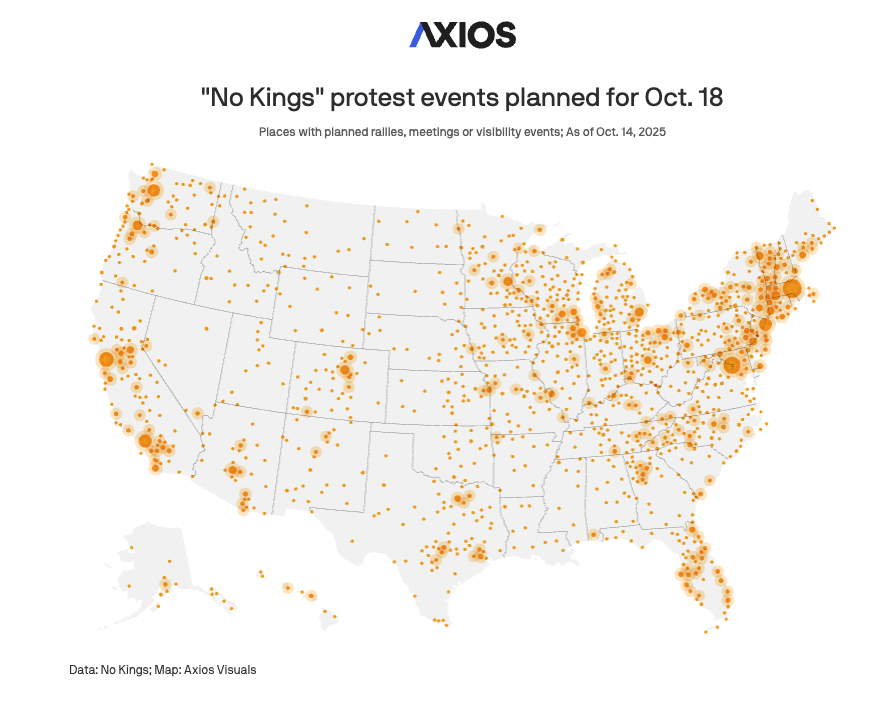

Sign up for our FREE morning newsletter and face each day more informed.
Washington, D.C
D.C. man sues after arrest for playing ‘Star Wars’ music to protest National Guard troops
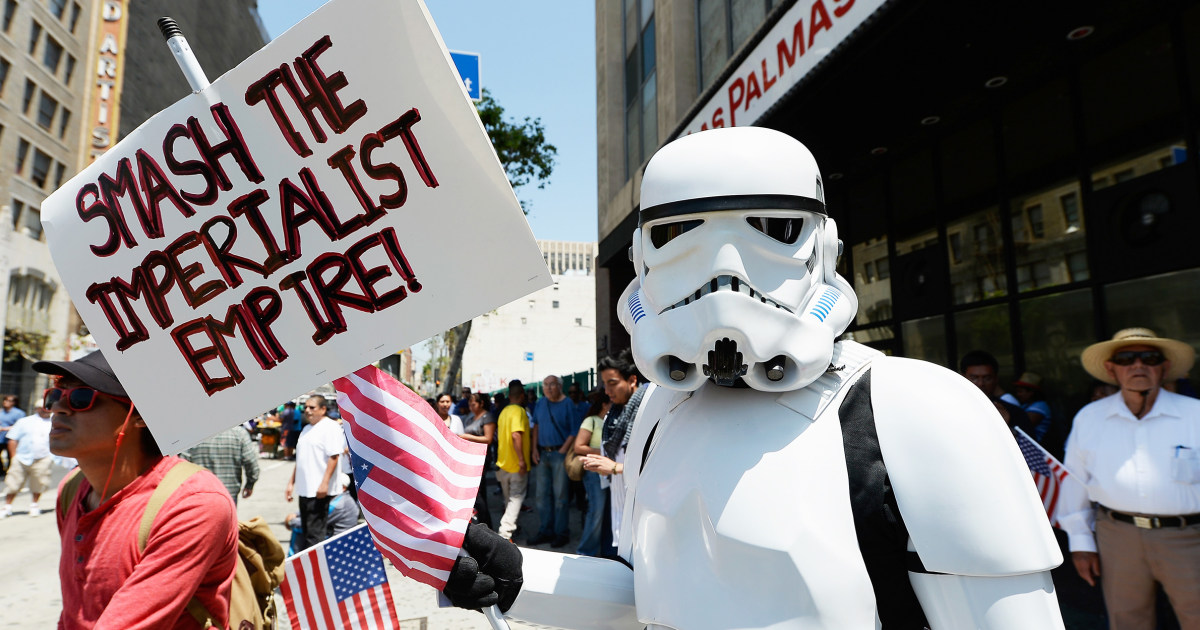
A Washington, D.C., resident who drew attention to the deployment of the National Guard in the district by playing “The Imperial March” from “Star Wars” is now suing after he was detained in what he argues was a violation of his rights while protesting.
“The law might have tolerated government conduct of this sort a long time ago in a galaxy far, far away,” Sam O’Hara’s lawyers with the American Civil Liberties Union wrote in a civil complaint filed Thursday, playing on the “Star Wars” theme. “But in the here and now, the First Amendment bars government officials from shutting down peaceful protests, and the Fourth Amendment (along with the District’s prohibition on false arrest) bars groundless seizures,” they wrote.
The complaint, filed in federal district court in Washington, D.C., gave O’Hara’s account of his detention last month. It followed one of the times he recorded and protested the deployment by playing the theme associated with “Star Wars” villain Darth Vader, while walking behind Guard members on public streets.
The incident leading to the lawsuit arose when the 35-year-old was coming home from work on Sept. 11, and he began walking behind a group of Guard members while playing the march on his phone and recording them. He said he didn’t speak to them, touch them or interfere with their activities, and he said he played the music loudly but not at a “blaring level.”
O’Hara’s complaint said that most Guard members he encountered during his protests ignored him and that “a few smiled or laughed.” But he said that on Sept. 11, Sgt. Devon Beck of the Ohio National Guard “was not amused by this satire,” and that Beck contacted D.C. police officers, who handcuffed the plaintiff and blocked him from “continuing his peaceful protest.” He was released without charge.
O’Hara’s suit names Beck, several D.C. officers and the District of Columbia as civil defendants. He claims violations of the First and Fourth Amendments, as well as false arrest and battery. He said officers refused to loosen his tight handcuffs, which caused him pain. The defendants will have an opportunity to respond in court before a judge weighs in on how the case will proceed.
The suit comes as litigation unfolds over the Trump administration’s attempted deployments in Los Angeles; Portland, Oregon; and Chicago, with the last pending before the Supreme Court in a case that could be decided any moment.
Subscribe to the Deadline: Legal Newsletter for expert analysis on the top legal stories of the week, including updates from the Supreme Court and developments in the Trump administration’s legal cases.
Washington, D.C
‘Hey, Meta. What’s in front of me?’ How AI glasses are changing a blind DC woman’s life

AI glasses let users take videos, stream music and capture everyday moments. For people who are blind and visually impaired, they can be a lifeline.
A native Washingtonian declared legally blind at birth showed News4 how the glasses are changing her life.
Chrichelle Brown is fiercely independent. She rides Metro, takes the bus and shops for groceries. On her own, she can see people and objects but not details. Using AI glasses, she has access to a lot more.
Originally designed for streaming and capturing video, members of the blind community quickly discovered another use. With a simple voice command, the glasses’ built-in camera, microphone and speakers let users talk with an AI assistant that can identify objects, read text and describe surroundings.
“It changes a lot. I’m even able to get descriptions. As I mentioned, I don’t see detail, so being able to ask, ‘Hey Meta, what’s in front of me?’ —it can give me extreme detail, up to what someone’s design is on their shirt,” Brown explained.
Without the glasses, she could see a News4 reporter’s shadow. With them, she knew she was wearing a white sweater and light-colored pants and has blonde hair and light eyes.
Brown teaches others how to use AI glasses at Columbia Lighthouse for the Blind in Silver Spring. Her three-day monthly seminar is free to the community.
On the day News4 met with her, she invited us along as she and a student, Rose, headed to Starbucks. Brown showed Rose how to ask Meta to read the menu. The glasses instantly described the options out loud. It was a small moment that symbolized something much bigger: independence as she often had to rely on others for help.
The glasses connect to a free app called Be My Eyes, which recently partnered with Meta. It links users to millions of volunteers around the world who can see what they can’t, providing real-time, audible feedback.
“I use them for a lot of things. I use them to sometimes help me pick out certain clothes if I think I want them to match a certain way,” Brown said. “If I’m at the store and they can’t find a representative, I will use Be My Eyes to get a volunteer to help me find the specific items at a grocery store.”
She said she’s careful not to rely on AI alone.
“Hey, Meta: How many steps?” Rose asked Brown. “What if this thing tells me there are no steps but there is steps?”
Brown told her to hold on to the railing.
“I always tell people that, you know, when I’m teaching a class, that these glasses are meant to enhance your independence but not replace the services and the knowledge that you have gained from taking the other classes,” she said.
Meta said its goal is to make the glasses more accessible. As the technology improves, advocates hope they’ll continue breaking barriers for people who are blind or visually impaired.
Sign up for our free deep-dive newsletter, The 4Front, to get standout News4 stories sent right to your inbox. Subscribe here.
-

 New York3 days ago
New York3 days agoVideo: How Mamdani Has Evolved in the Mayoral Race
-

 World6 days ago
World6 days agoIsrael continues deadly Gaza truce breaches as US seeks to strengthen deal
-

 News5 days ago
News5 days agoVideo: Federal Agents Detain Man During New York City Raid
-

 News5 days ago
News5 days agoBooks about race and gender to be returned to school libraries on some military bases
-

 Technology6 days ago
Technology6 days agoAI girlfriend apps leak millions of private chats
-

 News6 days ago
News6 days agoTrump news at a glance: president can send national guard to Portland, for now
-

 Politics6 days ago
Politics6 days agoTrump admin on pace to shatter deportation record by end of first year: ‘Just the beginning’
-

 Business6 days ago
Business6 days agoUnionized baristas want Olympics to drop Starbucks as its ‘official coffee partner’
